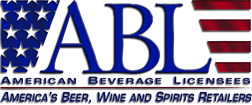February 9, 2022 – Bethesda, MD – American Beverage Licensees (ABL) Executive Director John Bodnovich issued the following statement in response to the U.S. Department of the Treasury’s report on competition in the alcohol industry:
“The Treasury’s report on alcohol industry competition importantly notes ‘the intersection of the 21st Amendment and the Commerce, Contract, and Equal Protection Clauses leaves the alcohol market subject to both state and federal oversight, each with its own focus.’ The report adds that when it comes to alcohol, ‘federal regulation does not necessarily pre-empt state regulation in the same way as it does for other commodities,’ and it acknowledges that ‘the three-tier system is not a federal creation.’
Independent beverage retailers agree.
However, for the report to suggest that ‘state legislatures might consider if the benefits of the three-tier system outweigh its costs to competition and study markets without a three-tier system’ ignores the fact that states already thoroughly examine their alcohol laws on an annual basis, debating and modifying them in state legislatures to best meet the needs of public safety, consumers, businesses, and the state. In fact, more than 2,600 alcohol bills have been passed in state legislatures since 2012.
Non-three-tier markets around the world do not offer anywhere near the variety of competition among both reliable and innovative products for consumers as U.S. state alcohol markets, nor do they provide the same level of reliability when it comes to preventing counterfeit, tainted or illegal alcohol products.
The report identifies horizontal competition issues within non-retail tiers of the industry but does not address anti-competitive policies advanced under the guise of supporting small suppliers, which can create tilted inter-tier competition for traditional retail market participants. These efforts function as trapdoors to industry deregulation and threaten the vertical integrity of beverage alcohol markets.
With states operating under various types of three-tier systems, creating markets in which differently licensed alcohol businesses are granted the same or similar privileges, thus giving an advantage to those firms that control the product, and disadvantaging those firms that are required by law to purchase the product through a regulatory framework, is anticompetitive.
It is also troubling that when examining ‘direct-to-consumer’ shipping of alcohol, the report relies extensively on a nearly 20-year-old Federal Trade Commission (FTC) wine report that is ‘based on a study of one local market.’ Reaching conclusions on a topic as complex and nuanced as direct-to-consumer sales demands a more thorough analysis and, as the report notes, ‘is best addressed by a democratically-elected legislature.’
The report’s authors do rightly recognize a growing and challenging reality when it comes to independent beverage retailers’ ability to compete in a marketplace:
One obvious gap in the FAA Act scheme is its lack of rules for retailers. Apart from the consignment sale provisions, the prohibitions do not apply, on their face, to retailers. When a retailer proposes or requires participation in a pay-to-play scheme in violation of the rules, the Bureau may only take enforcement action against the wholesalers or producers who participate, as opposed to taking action against the retailer…The problem is made worse by the fact that many retailers appear to have considerable market power today (e.g., national grocery and restaurant chains and large event venues, in contrast to the independent local saloon discussed in the legislative history). When retailers demand sufficiently large, up-front cash payments that competitors cannot easily match, those demands have the potential to raise rivals’ costs and effectively exclude them from the market.
Beverage licensees welcome a discussion about how the TTB can ‘provide greater clarity (on) what it considers to be conduct that, by its nature, fulfills an element of a violation’ and ‘consider adding to its categorical approach by further specifying practices that threaten retailer independence, particularly focusing on practices that result in exclusion.’ Sharpening the focus of trade practice enforcement – including category management and tied-house arrangements – is warranted.
A balance of competition, regulation, innovation, and entrepreneurship has created a vibrant beverage alcohol industry with hundreds of thousands of competitors that delightfully “is somewhat unusual in the contemporary U.S. economy, in which many markets are dominated by a small number of national brands.” Beverage retailers look forward to working with federal officials on competition issues within the beverage alcohol industry to ensure that vibrancy continues to flourish.”
###
